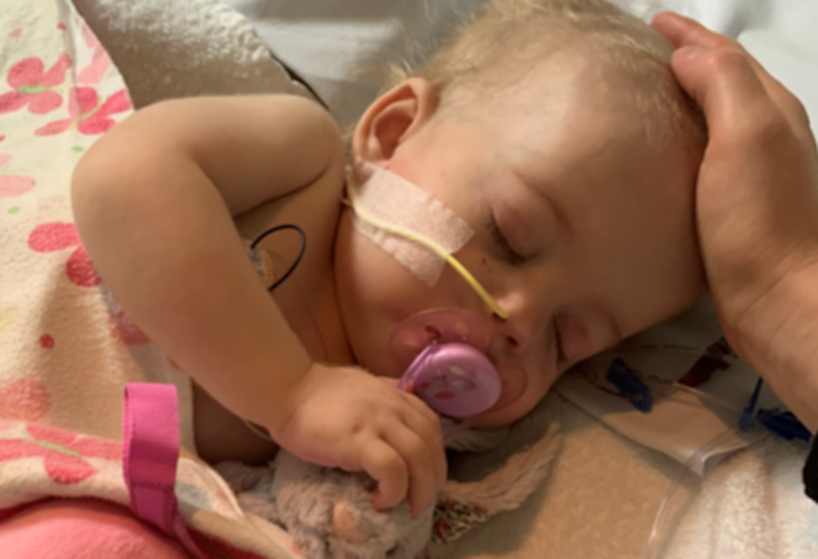Both parents, Rob and his wife Katrine, reportedly said that their daughter, RiIey, Iaid unconscious and was kept alive only by machines, they both felt helpless. The doctors told the parents that the life-threatening condition sepsis – when the body’s response to an infection damages its own tissues – had left their precious 18-month-old daughter teetering on the brink of death. The first sign of trouble had come when Katrine was 20 weeks pregnant. The second-time mum was told a cyst-like structure was growing inside her baby girl’s abdomen – and doctors had no idea why.
Immediately after Riley was welcomed into the world, the newborn was whisked away for a barrage of tests. When the little baby was just 1 month old, she underwent surgery to confirm a devastating diagnosis. The infant had Biliary atresia, a rare condition that blocks bile ducts around the liver. Surgeons were able to repair some of the damage, after telling the baby’s parents there was a huge chance the surgery wouldn’t work. However, that appeared to be the end of the good news for the family. Unable to swallow, Riley was given a feeding tube and was continuously in and out of hospital with infections.
But the operation is considered extremely risky and is usually performed only in extreme cases when a donor from a deceased person cannot be found. He was taken to the hospital in preparation for surgery the next day. But just before he arrived, he received a call – they had found another liver for Riley, from a deceased donor. Grateful her husband no longer had to go under the knife, Katrine was still anxious about Riley’s operation. Their baby underwent the second transplant surgery and two months later, she was finally allowed home. The parents will never forget the gift Riley’s donor gave her. Nor will they forget the organ donated from the first person. Every year on the anniversary of the transplant, the parents plan on honouring both donors – with special thanks to the person who gave their daughter life. “Organ donors are absolute heroes,” Katrine says.


